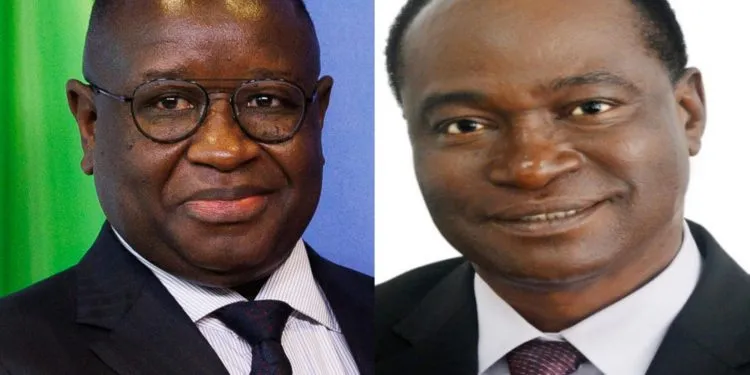Vote counting is underway in Sierra Leone – after citizens on Saturday, 24 June, voted in the presidential, parliamentary, and local elections.
Incumbent President, Julius Maada Bio faces off against 12 opponents – including twelve men and one woman.
Bio’s principal challenger is Sumura Kamara of the All People’s Congress (APC), whom he narrowly beat in a runoff in 2018.
Weeks before voting day, President Bio was announced as the “the people’s favorite.” This was, however, challenged by a renewed frustration with Bio’s handling of the economic crisis.
Violence between SLPP and APC soared – with several incidents including burning offices and residences of different opponents reported.
Not void of hitches
As vote tallying is underway, several hitches were reported in some polling stations across the country.
In areas where voting was scheduled to begin at 7 am, voters could only cast their votes more than 4 hours later. Voting materials failed to arrive on time in some areas, especially in the northwestern part of the country.
Videos shared on social media exposed election malpractices, such as stuffing ballots and multiple voting were also reported.
Chernor Ramadan Maju Bahfrom, a lawmaker from the ruling Sierra Leone Peoples Party (SLPP), revealed on Twitter that some people with valid voter cards were also denied access to the polling stations.
“Registered voters with specific surnames carrying valid voter cards are being stopped from voting by ECSL staff claiming that their names are not on the register. This is unacceptable,” he said.
Economic woes and cost of living crises
Kamara who has promised economic reforms to Sierra Leoneans has already faulted the electoral commission for the hitches reported on voting day.
For over 30 years, Sierra Leone has been dealing with various economic hardships – with solutions still far-fetch.
The country has not been able to recover from a brutal civil war (1991-2002), the Ebola epidemic, COVID-19, and the invasion of Ukraine. Its inflation rate hit its highest level in over 20 years in 2022, rising over 41.5% in one year. The national currency has also decreased by 60% in value.
Bio’s legacy
President Bio was elected in 2018 after beating Kamara by only 15,000 votes. As a former military officer, Bio participated in two coup d’états during Sierra Leone’s civil war in the 1990s. In 1996, he briefly ruled the country as the head of the military government.
Multiple deadly anti-government protests have occurred during Bio’s term. In August 2022, a protest against cost-of-living crises led to the deaths of 21 civilians and six police officers. Bio said it was a “premediated plot to take down the government.”
Several national and international human rights organizations in the country are concerned that violence could escalate if the election ends in a tie.
Bio’s supporters and colleagues have praised him for abolishing the death penalty, improving rates of education, especially for women, and fighting corruption.
Many have, however, argued that most of the efforts are an “idealized portrait” that the SLPP wishes to paint. His opponents argue that Bio has failed to tackle unemployment.
“We have been yearning for change. We’ve had different leaders since gaining independence, but we are yet to have sustainable electricity, sustainable health, all these things a young person like me needs,” Abu Koroma, 23, a first-time voter told Reuters.
According to Sierra Leone’s information minister, the election results would be announced in a few hours.
By Abia N.



